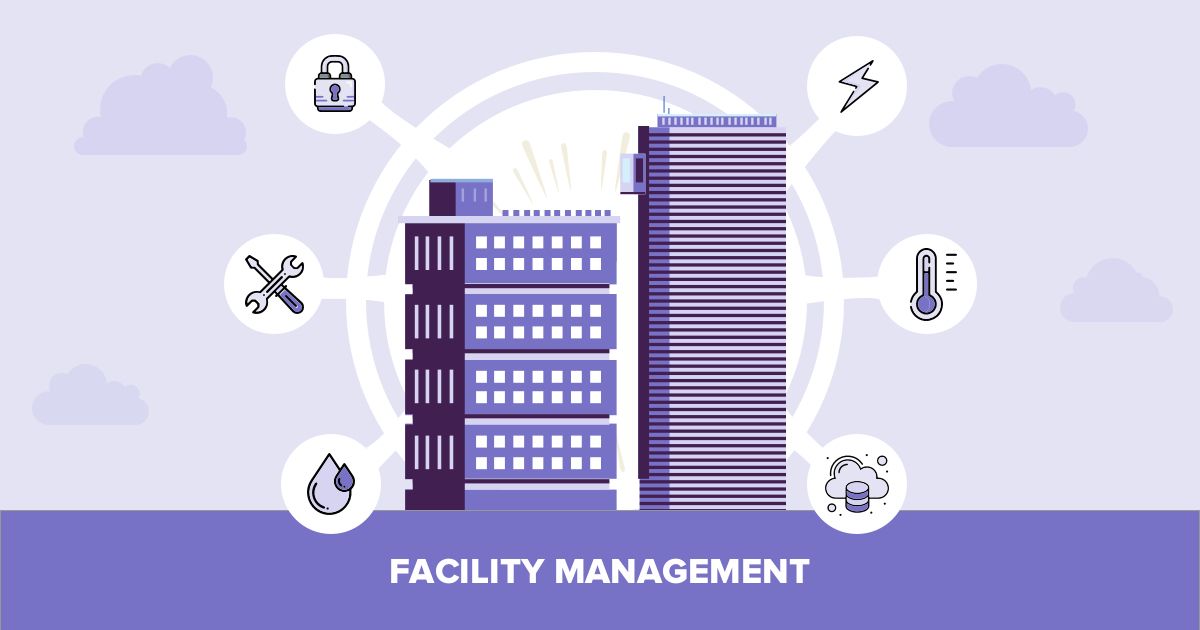How Total Facility Management Enhances Workplace Efficiency and Cost Efficiency
Why Total Facility Management Is Vital for Company Success
Total Facility Management (TFM) offers as a cornerstone for service success by integrating varied operational aspects such as maintenance, area application, and safety and security measures. As companies browse an affordable landscape, recognizing the complex benefits of TFM can be pivotal in driving cost effectiveness and enhancing worker performance.
Recognizing Total Facility Management
Total Facility Management (TFM) includes a detailed technique to taking care of a company's structures and linked solutions to make sure ideal capability, safety and security, and performance. TFM incorporates different self-controls, including maintenance, operations, space management, and safety and security methods, to produce a cohesive framework that supports a company's core purposes.
At its core, TFM intends to enhance the processes included in facility management, lowering redundancies and boosting service delivery. This strategy entails the sychronisation of activities associated with residential property management, such as repairs, cleansing, and power management, to cultivate an effective atmosphere for employees and stakeholders alike. TFM additionally highlights the significance of implementing ideal methods and innovative modern technologies to enhance service top quality and decrease operational expenses.
Understanding TFM calls for acknowledgment of its strategic value in supporting a company's mission. By straightening facility management activities with business goals, TFM enhances general efficiency while making sure compliance with health and wellness, security, and ecological regulations. Hence, TFM serves not just as a logistical function however also as a calculated asset, adding to an organization's long-lasting sustainability and development. In summary, TFM is crucial for producing a well-functioning environment for organization success.
Key Benefits of TFM
Leveraging a detailed strategy, organizations that execute Total Facility Management (TFM) unlock a myriad of advantages that add to total business success. One of the main benefits of TFM is the improvement of functional performance. By settling facility solutions under a unified management structure, organizations can streamline processes, decrease redundancies, and enhance interaction throughout divisions.
Additionally, TFM advertises an aggressive upkeep approach, which decreases downtime and expands the life-span of facilitiess and tools (Total Facility Management). This aggressive strategy not just boosts performance yet additionally promotes a much safer working atmosphere, eventually causing higher worker fulfillment and retention rates
Furthermore, TFM helps with better resource allocation by giving understandings right into facility performance metrics. Organizations can recognize locations for enhancement, allowing them to make informed choices that line up with their calculated goals.
TFM and Cost Performance
Accomplishing expense efficiency is a basic objective for organizations, and Total Facility Management (TFM) plays a crucial function in this venture - Total Facility Management. By integrating numerous facility solutions under a solitary management framework, TFM allows organizations to enhance operations and lower redundancies. This alternative approach brings about considerable cost financial savings, as it gets rid of the demand for several vendors and streamlines procurement procedures
Furthermore, TFM cultivates positive upkeep techniques, which minimize the danger of costly repair services and downtime. By prioritizing preventative steps, companies can extend the life-span of their assets and minimize unexpected expenditures. In addition, TFM integrates power management methods, which can significantly reduce energy costs with efficient source application.
The centralization of data and analytics within TFM enables organizations to make educated economic choices. By identifying patterns and areas for enhancement, TFM makes it possible for customized methods that further enhance expense management. In addition, the scalability of TFM options makes sure that as organizations grow, their facility management methods remain reliable and aligned with financial objectives.
Enhancing Staff Member Productivity
A well-managed facility can substantially increase worker productivity by creating a helpful workplace. Efficient Total Facility Management (TFM) makes sure that all elements of the work environment-- from lighting and temperature to sanitation and security-- are enhanced. When staff members run in a space that is well-maintained and comfortable, they are a lot more most likely to concentrate on their tasks, resulting in greater output and work contentment.
Moreover, TFM can improve collaboration via the tactical style of communal areas, motivating synergy and innovation. By investing in the appropriate resources and innovation, organizations can facilitate seamless interaction and streamline workflows, further boosting productivity. Regular maintenance and prompt reactions to facility concerns prevent disruptions that could otherwise hinder performance.
Additionally, a healthy and balanced and secure More Info workplace, supported by TFM techniques, minimizes absence and promotes health, directly associating with increased efficiency degrees. Ultimately, focusing on facility management is an investment not only in physical properties however additionally in the labor force itself. By cultivating an atmosphere that supports staff member requirements and preferences, companies can grow a much more engaged and reliable workforce, driving general success and affordable benefit.
Future Trends in TFM
Welcoming technological improvements is set to reshape the landscape of Total Facility Management (TFM) in the coming years. As the demand for efficiency and sustainability boosts, TFM will significantly embrace wise building modern technologies, incorporating Web of Things (IoT) gadgets to manage and keep track this link of facility operations in real-time. This shift will certainly make it possible for aggressive maintenance, significantly decreasing functional prices and improving solution shipment.

Sustainability stays a crucial emphasis, with TFM professionals expected to prioritize environmentally friendly methods. This consists of utilizing renewable resource resources and optimizing waste management systems to decrease the carbon impact of facilitiess.
Remote management capacities will certainly also be broadened, allowing facility managers to supervise operations from virtually anywhere. This adaptability will certainly become crucial as companies adjust to hybrid work designs. In summary, the future of TFM is poised for change with innovation, sustainability, and improved operational methods, ensuring companies continue to be affordable in an advancing landscape.
Conclusion
Finally, Total Facility Management is a vital component for accomplishing business success. By incorporating numerous official website operational features, TFM enhances efficiency and aligns facility management with business purposes. The resulting price savings, improved staff member efficiency, and safer workplace add significantly to total performance. As businesses significantly embrace sustainable techniques and ingenious technologies, the importance of TFM will continue to grow, making certain long-term operational effectiveness and competition in an evolving marketplace.
